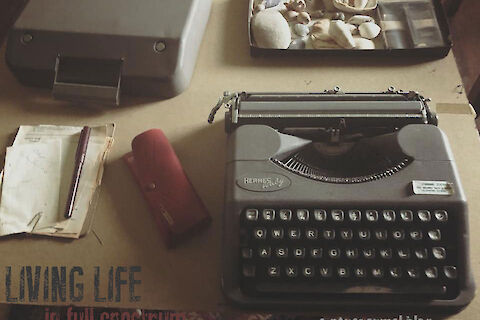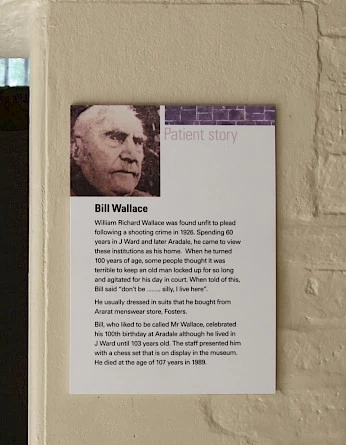

Should you research before an investigation?
It can be quite a heated debate between investigators as to if you should research a location before an investigation. While some people think the knowledge you gain from the research can help with an investigation, other investigators feel that you may look too hard and read too much into things and that the power of suggestion can lead you on. I personally believe both are factors that need to be considered but I am all for the research. I have done investigations researching as much as possible beforehand, and I have also gone into investigations blind not knowing anything.
I personally prefer to go in with as much knowledge about the place and the people as I possibly can. Let me tell you why. I am not a sensitive person and I am not a medium. I cannot walk into a location blind and be able to tell you what has been done there and who we may be communicating with. I certainly know why people that have these gifts would want to go in blind and personally I agree they should. If you are using a medium and they haven’t been given any information whatsoever, if what they pick up on is genuine and if it is then matched back later with historical information, they have done a great job and I am sure it must be a very accomplishing feeling to have their feelings and findings validated. As someone that does not have the ability to do this, I need to know before I go in, as I feel this makes me a better investigator. Another point to consider is, if you go in blind, how do you know which areas to target? If you don't know the history of the building and where certain things have happened, how do you know which areas to investigate in. If you are going to have locked off cameras for example, how do you know where to put them if you don't have any information on the location? While you should still investigate a location as a whole as activity is not necessarily limited to a certain area, any claims should be investigated and possibly debunked. There is a difference between a paranormal investigation and a ghost hunt. A paranormal investigation normally consists of people trying to gain data to be able to validate claims. If there is a particular room where activity is reported, I am going to be seeing if I can replicate that activity. I am going to see if I can document that activity. What is it's source? Is there a potential reason for the activity to occur? Is there is a history of this activity happening over the years?Where are the reports of this activity coming from? This is information I wouldn't know if I were to go in blind. A ghost hunt I believe is more just going in and seeing what you find. While this can be fun and is a style that many like to work with, it just isn't for me. We all work differently and if that is the way you like to do it, do what works for you!
When I have gone into an investigation blind, I find it difficult to communicate. What kind of questions do I ask if I don’t know what has gone on there? Sure I can ask the usual questions, what is your name, how did you die, what was this building used for etc, but how likely is it that you are going to actually get a response? Or if you are recording an evp and not listening live, you don’t hear the answer until after the fact when it is too late. Maybe I just need to be a better investigator and think more outside the box, but this is my style and how I like to do things. I will gather as much documented information as I can on what a building has been used for and more importantly the people that were there. What happened to these people? How did they die there? What reason could they have for sticking around? I feel that going in with this knowledge aids my investigation technique. If other team members don’t want to know this information, I keep it to myself and they then use me as a reference point later in the investigation.

I use the example of Bill Wallace former inmate at J Ward asylum for the criminally insane. His story is quite well known here in Victoria. He was incarcerated at J ward for 64 years. He always wore a suit and expected to be treated like a gentleman. It was only when he was not treated with respect that he would act out. He loved to play chess. On his 100th birthday he was given a wood carved chessboard for his birthday as a present from the Governor and prison guards. He later died at Aradale Lunatic Asylum at the age of 108. With the intention of communicating with Bill Wallace, we had a custom made chessboard built with a vibration sensor inside. The aim was to put it in Bill Wallace’s cell as a gesture. We know that he wanted to be treated like a gentleman so our investigative technique was polite and soft (which for us is not the norm when investigating a hard core prison). When we would refer to him as Mr Wallace, the chess board would light up. When we told his story and asked if it was correct the chess board lit up. Was it because we were being polite that he communicated with us? Is it because we called him by his preferred name? Is it because we brought in a chess board knowing he loved to place chess? We of course cannot confirm that we were communicating with Mr Wallace. What we can show you is hours of footage of no responses on the chess board. We can show you footage of us stomping around, yelling, slamming doors trying anything to trigger the chess board to debunk it. We can’t say it is paranormal, but after 2 visits we still cannot explain the responses. For us however, it was validation that our tireless efforts of research were rewarded.
What do you do with your evidence once you have collected it? For some investigators just the capture of something is enough. For me it isn’t. I want to know who it is. If we catch a name on evp, I am straight to death records and newspaper articles to see if there is a match. To me it is like a jigsaw puzzle I am trying to put together. I then use the information I have gathered along with any response and when I revisit a location, I try to contact this same person armed with more knowledge about them. I use this knowledge when I am trying to communicate. I am all about experimenting and trying new things. If I want to use trigger objects, I need to know what kind of items may get a response. If I am playing music or dressing up, I need to know what era I am targeting. I wouldn't know this if it weren't for the research.
If you are not on board with the research beforehand, there is a middle ground. A way around this would to be only have one member of your team aware of the historical information. This way you are not led by any sort of suggestion if that is your concern. They can confirm or validate things as the night goes on and steer you in the right the direction if you are going too far off track. It all comes down to what you believe and what your team dynamic is.
Now of course over my years of investigating, there is a side of researching beforehand that I hadn't considered in the earlier years of investigating, yet it still hasn't changed my approach. If we are going into a location armed with knowledge of the history and the reported claims of activity, are we potentially making that activity happening? I talk a lot about us being the ghosts, and this is a factor to consider. While this doesn't change my approach to investigating, it does change how I observe my findings. In a lot of ways, knowing this is a possibility I believe gives me an upper hand as it means I can take my experimentation to the next level. Much like the Philip experiment, can I perhaps 'create' a ghost using fake history to see if this really is a factor? There are just so many things you can do.
One part I love about investigating is the history and the story telling so of course I am going to research beforehand. If no one else wants to know, I will be that member on the team that has the information. It’s the story of the people you are communicating with. I love researching and I will now very rarely go into a location I have not tirelessly researched. Anyone who investigates with me will see that I am not the kind of investigator who is just looking in general. I am looking for a person and their story. On investigations I often tell their story and I am always looking for more answers. I guess I feel that no matter who you are, your story deserves to be told. You don’t need to be a famous criminal or millionaire owner of a homestead, EVERYONE deserves their story to be told. From the humble servant or the caretakers, chefs and occupants, everyone should have a voice. I feel that researching helps them have that voice.
Don't forget to LIKE the Facebook page for updates on new content www.facebook.com/livinglifeinfullspectrum
If you enjoy LLIFS, consider buying me a book (otherwise known as buy me a coffee but I don't drink coffee and I LOVE books). Your donation helps to fund the LLIFS website so everyone can continue to access great paranormal content and resources for FREE!

Top pages with similar subjects
Don't forget to follow the Facebook page for regular updates
Join the mailing list to receive weekly updates of NEW articles. Never miss an article again!
Buy the latest and past issues Haunted Magazine
Check out the books written by LLIFS